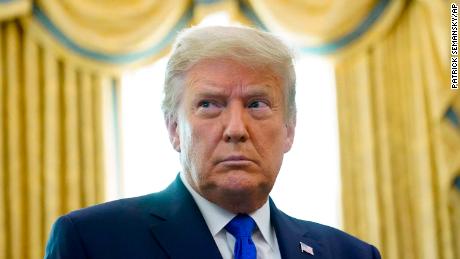As an outspoken advocate for self-determination in Western Sahara, I have long been a target for the occupying Moroccan government. I have been beaten, tortured, and abducted by Moroccan police while engaged in peaceful protests; after a particularly violent assault in 2007, I lost my right eye.
Because I refuse to be silenced, Morocco stepped up its efforts against me late last year. On November 19, while driving to my home in Boujdour, I was stopped at a police and military checkpoint. The authorities forced me into a police car and took me to a nearby police station, where I was interrogated, sexually assaulted, and told to go home and not to speak to anyone. I arrived home soon thereafter to find it surrounded by 21 police vehicles and numerous officers, who physically pushed me into the house. I have been forcibly confined to the house ever since.
My de facto house arrest, which is now in its ninth month, has absolutely no legal basis — I have never been shown a court order authorizing my detention or informed of any criminal charges against me.
The Moroccan government has told Amnesty International that I’m not under house arrest and denied a statement by the UN Special Rapporteur on the situation of Human Rights Defenders that included details of the assaults, saying that the rapporteur’s statement “interferes with the ongoing debates in the framework of the 47th Session of the Human Rights Council” and “do not fit at all with the framework of dialogue and mutual respect” it expected at the UN. Meanwhile, the occupying Moroccan forces appear determined to not just detain me unlawfully, but to harass, torture, and perhaps even kill me.
Moroccan police, military, and other security agents maintain a constant presence outside the house and prevent anyone from leaving or coming in, even to bring food. They cut the electricity in mid-April. Police throw a toxic, foul-smelling liquid into the house on a near-daily basis, making it difficult to breathe. They frequently (and explicitly) threaten to kill me.
Moroccan authorities have also repeatedly raided the home and brutally assaulted me, my sister, my brother, and my mother. In May, during one such raid, Moroccan agents raped my sister and I — in a barbaric message, they penetrated my sister using the broomstick that we use to wave the Western Sahara flag. Despite all this, I continue to wave the Western Sahara flag from my rooftop every day — an act of resistance that may end up costing me my life.
Unfortunately, my story is just one of many. Morocco’s repression of the Sahrawi people, and Sahrawi human rights defenders in particular, is well documented. The Sahrawis have struggled under Moroccan occupation since 1975, and this repression will continue until the occupation is ended. And while the United Nations Security Council supports giving the people of Western Sahara the chance to determine their own future through a referendum, Morocco has refused to allow the referendum to take place, depriving us of the chance to exercise our right to self-determination.
My situation is desperate. On Wednesday, my international legal team submitted my case to the U.N. Working Group on Arbitrary Detention, urging it to find I am being detained illegally and to demand my immediate release. However, in order to secure justice for me and the Sahrawi people, I also need help from the US.
First, the Biden administration should immediately acknowledge Morocco’s occupation for what it is — an occupation — and stop recognizing Morocco’s sovereignty over Western Sahara. This recognition — originally announced by President Donald Trump via tweet in December 2020 — runs contrary to decades of established US policy on Western Sahara.
When President Biden took over, we who are fighting for self-determination hoped that he might fix this. However, as recently as July 1, the State Department reiterated that there is no change in the administration’s policy. The Biden administration has claimed that human rights are central to its foreign policy — this is difficult to believe while it sides with Morocco in its occupation of Western Sahara and its repression of the Sahrawi people.
Second, as part of its reengagement with the United Nations Human Rights Council, the US should press forcefully for a referendum on self-determination in Western Sahara. The U.N. General Assembly reaffirmed the right to self-determination of the people of Western Sahara as far back as 1966, when it was still referred to as “Spanish Sahara,” and the U.N. Security Council unanimously established a mission to coordinate a referendum on self-determination for the people of Western Sahara in 1991.
The US, for its part, has consistently voted in favor of Security Council resolutions seeking a referendum on self-determination. Since President Biden has advocated for a return to a rule-based international order, the US should take the lead to ensure that the long-promised referendum is finally held and the results are honored.
And third, the U.S. should make the protection of human rights in occupied Western Sahara and self-determination for the Sahrawi people key issues in its bilateral relationship with Morocco. For example, the readout from a recent call between US Secretary of State Antony Blinken and Moroccan Foreign Minister Nasser Bourita shows that while Blinken encouraged Morocco to reaffirm its commitment to human rights, the readout omitted any mention of Western Sahara or the right of its people to self-determination.
For any productive change to occur, Morocco needs to know that its powerful allies care about both.
I cannot find the words to describe the endless suffering that I personally, and the Sahrawi people more generally, have endured under this violent occupation. But we remain strong, our will unshaken, and we will persevere with our peaceful resistance.






